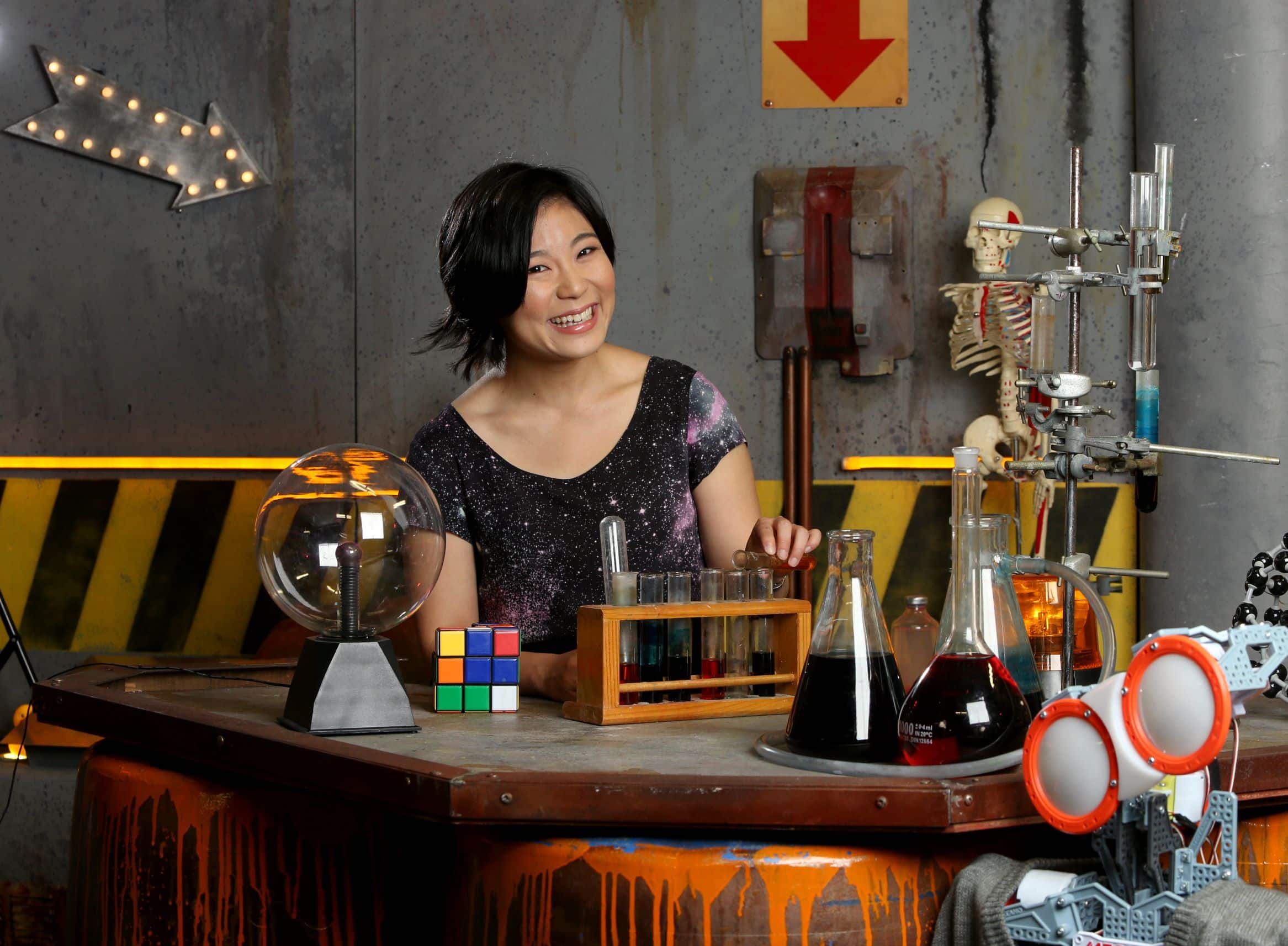Everyone in society benefits from scientific knowledge. But far too few people are able to fully engage with — or have access to — it. Recognising this gap between science and society, the Australian National University’s (ANU) Master of Science Communication helps students become future leaders with the know-how to make science relevant to the world’s most pressing problems.

Source: Australian National University
Offered by the Australian National Centre for the Public Awareness of Science, this programme is a unique blend of research, coursework, and hands-on experiences with leading science organisations. Led by Australia’s top science communication experts, modules cover science in the media, science and public policy, public engagement programmes and methods, ethics of science and cross-cultural science communication. The goal of the programme is to prepare students to become professional science communicators in government, industry and the media, or to gain skills in communicating their own science. And the careers of graduates span far and wide, showing the programme’s versatile and high impact outcomes.
“Opened a lot of doors to opportunities” and a job with George Lucas
Maaroof Fakhri from Zurich put his career at IBM on hold to pursue ANU’s Master of Science Communication in Canberra. Packaged as a gateway into a world of possibilities, it was too good an opportunity to pass up. “True enough, it was a crash course in a variety of skills that opened a lot of doors to opportunities that would have otherwise taken longer to achieve,” he shares.
After graduating, he was entrusted to run nationwide government public engagement efforts on future technologies, publish science magazines targeting young people and work closely with remote Australian Indigenous communities. Fakhri owes the confidence he had to take on these tasks to the practical exposure he gained at ANU.
Today, as General Manager for Lucas Learning, Fakhri translates complex scientific topics into product development and engages with subject-matter experts when he isn’t collaborating directly with the renowned film director who brought us the Star Wars franchise. Together, they develop science education in the form of interactive simulations for school students.
“I’m constantly navigating the complexities of communicating scientific and technical things with these stakeholders,” enthuses the graduate. “I never would have gotten the role without the skills I developed at ANU.”
Helping governments better understand, measure and improve agriculture and fisheries projects
After a decade in agricultural research and extension in southern Queensland, Heidi Parkes saw the need for more people to understand what’s going on in the world’s biggest challenges. A colleague recommended ANU’s Master of Science Communication, which Parkes was glad to pursue remotely while continuing to work full-time and manage her farm. Her decision proved fruitful.
“The verbal and written skills I developed and honed through the programme have given me the confidence and ability to communicate more effectively,” she shares. “I now enjoy the task of writing for different audiences rather than dreading the whole process — this has been a really satisfying change for me.”

Source: Australian National University
Parkes credits her growth to various courses. “Communicating Science with the Public” introduced her to diverse theoretical models of communication, while “Science Politics” enhanced her persuasive writing skills significantly. “Research Methods for Science Communication” provided valuable insights into qualitative research, which is crucial in her current role.
As Senior Information Extension Officer at Queensland’s Department of Agriculture and Fisheries, she works closely with horticultural industries, tackling challenges in pest management and agricultural technologies. Currently, she’s focused on improving sustainable management of fall armyworms
“The skills in social research and qualitative analysis that I learnt through my degree have helped me develop a method for collecting and analysing data from growers throughout the project to help us understand, measure and continually improve project success,” she shares. “Looking ahead, I believe this qualification will also enable me to consider career opportunities with government or industry.”
From ANU to creating content for the Royal Institution in London
Isla Nakano initially aspired to become a doctor — until a volunteering role at the Australian Museum sparked an interest in science communication. In 2015, she turned to ANU, determined to learn how to effectively convey scientific concepts. Through the Master of Science Communication, that’s precisely what she learned to do.

Source: Australian National University
“It taught me about the importance of tailoring a message to your audience,” she says. “I think about why my target audience should care, how the message is relevant to them, and using language that they’re familiar with. I use this skill all the time, from speaking to a large auditorium of people, through to speaking with individuals.”
For her, the programme’s fieldwork course entailed crafting media assets and strategising social media plans — these tasks provided Nakano with practical understanding of the field, thoroughly preparing her for roles in government, commercial TV and charity sectors. Today, she works at the Royal Institution in London, where she creates captivating demonstrations, props, and experiences for diverse audiences.
Being involved with the Royal Institution’s Christmas Lectures, which has been airing on the BBC for over 70 years, has undoubtedly been a highlight for the graduate. “Throughout, I heavily rely on my communication skills to explain my ideas to stakeholders like the BBC commissioner, TV director, fabricators and technicians and scientists,” Nakano explains. “I also create workshops and activities that accompany the show for secondary school students. Thankfully, ANU taught me everything there is to know about how young people engage with and consume content.”
Follow Australian National University on Facebook, X, LinkedIn, YouTube, and Instagram











